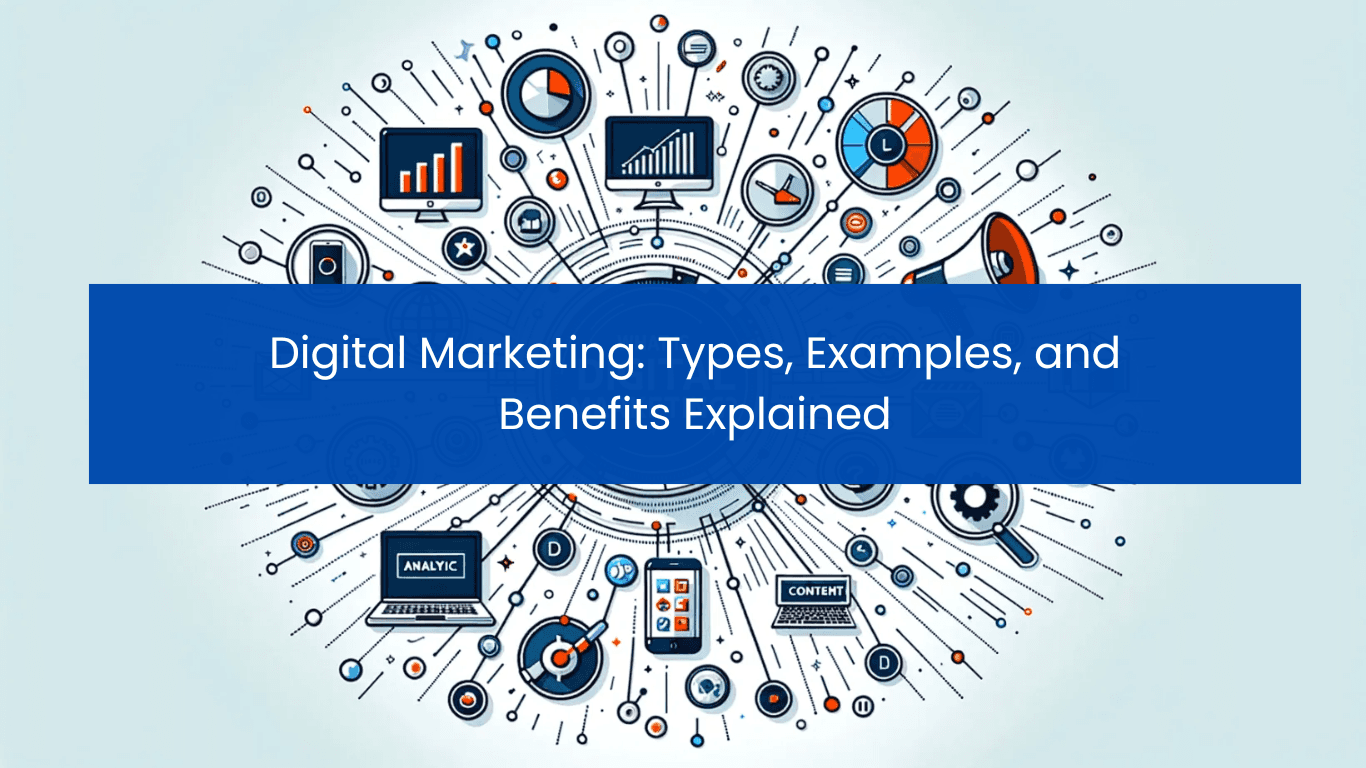Marketing Education
Digital Marketing: Types, Examples, and Benefits Explained
by Jennifer Wilcox
January 15, 2025
9 min read

Jennifer Wilcox
Verified Author
Founder of JW Marketing, has 15+ years of experience helping brands grow through smart, data-driven digital strategies, from social media to local SEO.
